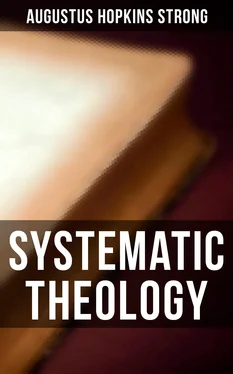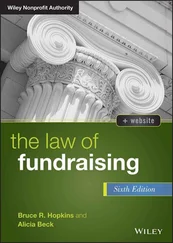(b) But we deny that external revelation is therefore useless or impossible. Even if religious ideas sprang wholly from within, an external revelation might stir up the dormant powers of the mind. Religious ideas, however, do not spring wholly from within. External revelation can impart them. Man can reveal himself to man by external communications, and, if God has equal power with man, God can reveal himself to man in like manner.
Rogers, in his Eclipse of Faith, asks pointedly: “If Messrs. Morell and Newman can teach by a book, cannot God do the same?” Lotze, Microcosmos, 2:660 (book 9, chap. 4), speaks of revelation as “either contained in some divine act of historic occurrence, or continually repeated in men's hearts.” But in fact there is no alternative here; the strength of the Christian creed is that God's revelation is both external and internal; see Gore, in Lux Mundi, 338. Rainy, in Critical Review, 1:1–21, well says that Martineau unwarrantably isolates the witness of God to the individual soul. The inward needs to be combined with the outward, in order to make sure that it is not a vagary of the imagination. We need to distinguish God's revelations from our own fancies. Hence, before giving the internal, God commonly gives us the external, as a standard by which to try our impressions. We are finite and sinful, and we need authority. The external revelation commends itself as authoritative to the heart which recognizes its own spiritual needs. External authority evokes the inward witness and gives added clearness to it, but only historical revelation furnishes indubitable proof that God is love, and gives us assurance that our longings after God are not in vain.
(c) Hence God's revelation may be, and, as we shall hereafter see, it is, in great part, an external revelation in works and words. The universe is a revelation of God; God's works in nature precede God's words in history. We claim, moreover, that, in many cases where truth was originally communicated internally, the same Spirit who communicated it has brought about an external record of it, so that the internal revelation might be handed down to others than those who first received it.
We must not limit revelation to the Scriptures. The eternal Word antedated the written word, and through the eternal Word God is made known in nature and in history. Internal revelation is preceded by, and conditioned upon, external revelation. In point of time earth comes before man, and sensation before perception. Action best expresses character, and historic revelation is more by deeds than by words. Dorner, Hist. Prot. Theol., 1:231–264—“The Word is not in the Scriptures alone. The whole creation reveals the Word. In nature God shows his power; in incarnation his grace and truth. Scripture testifies of these, but Scripture is not the essential Word. The Scripture is truly apprehended and appropriated when in it and through it we see the living and present Christ. It does not bind men to itself alone, but it points them to the Christ of whom it testifies. Christ is the authority. In the Scriptures he points us to himself and demands our faith in him. This faith, once begotten, leads us to new appropriation of Scripture, but also to new criticism of Scripture. We find Christ more and more in Scripture, and yet we judge Scripture more and more by the standard which we find in Christ.”
Newman Smyth, Christian Ethics, 71–82: “There is but one authority—Christ. His Spirit works in many ways, but chiefly in two: first, the inspiration of the Scriptures, and, secondly, the leading of the church into the truth. The latter is not to be isolated or separated from the former. Scripture is law to the Christian consciousness, and Christian consciousness in time becomes law to the Scripture—interpreting, criticizing, verifying it. The word and the spirit answer to each other. Scripture and faith are coördinate. Protestantism has exaggerated the first; Romanism the second. Martineau fails to grasp the coördination of Scripture and faith.”
(d) With this external record we shall also see that there is given under proper conditions a special influence of God's Spirit, so to quicken our cognitive powers that the external record reproduces in our minds the ideas with which the minds of the writers were at first divinely filled.
We may illustrate the need of internal revelation from Egyptology, which is impossible so long as the external revelation in the hieroglyphics is uninterpreted; from the ticking of the clock in a dark room, where only the lit candle enables us to tell the time; from the landscape spread out around the Rigi in Switzerland, invisible until the first rays of the sun touch the snowy mountain peaks. External revelation (φανέρωσις, Rom. 1:19, 20 ) must be supplemented by internal revelation (ἀποκάλυψις, 1 Cor. 2:10, 12 ). Christ is the organ of external, the Holy Spirit the organ of internal, revelation. In Christ ( 2 Cor. 1:20 ) are “the yea” and “the Amen” —the objective certainty and the subjective certitude, the reality and the realization.
Objective certainty must become subjective certitude in order to be a scientific theology. Before conversion we have the first, the external truth of Christ; only at conversion and after conversion do we have the second, “Christ formed in us” (Gal. 4:19) . We have objective revelation at Sinai ( Ex. 20:22 ); subjective revelation in Elisha's knowledge of Gehazi ( 2 K. 5:26 ). James Russell Lowell, Winter Evening Hymn to my Fire: “Therefore with thee I love to read Our brave old poets: at thy touch how stirs Life in the withered words! how swift recede Time's shadows! and how glows again Through its dead mass the incandescent verse, As when upon the anvil of the brain It glittering lay, cyclopically wrought By the fast throbbing hammers of the poet's thought!”
(e) Internal revelations thus recorded, and external revelations thus interpreted, both furnish objective facts which may serve as proper material for science. Although revelation in its widest sense may include, and as constituting the ground of the possibility of theology does include, both insight and illumination, it may also be used to denote simply a provision of the external means of knowledge, and theology has to do with inward revelations only as they are expressed in, or as they agree with, this objective standard.
We have here suggested the vast scope and yet the insuperable limitations of theology. So far as God is revealed, whether in nature, history, conscience, or Scripture, theology may find material for its structure. Since Christ is not simply the incarnate Son of God but also the eternal Word, the only Revealer of God, there is no theology apart from Christ, and all theology is Christian theology. Nature and history are but the dimmer and more general disclosures of the divine Being, of which the Cross is the culmination and the key. God does not intentionally conceal himself. He wishes to be known. He reveals himself at all times just as fully as the capacity of his creatures will permit. The infantile intellect cannot understand God's boundlessness, nor can the perverse disposition understand God's disinterested affection. Yet all truth is in Christ and is open to discovery by the prepared mind and heart.
The Infinite One, so far as he is unrevealed, is certainly unknowable to the finite. But the Infinite One, so far as he manifests himself, is knowable. This suggests the meaning of the declarations: John 1:18—“No man hath seen God at any time; the only begotten Son, who is in the bosom of the Father, he hath declared him” ; 14:9—“he that hath seen me hath seen the Father” ; 1 Tim. 6:16—“whom no man hath seen, nor can see.” We therefore approve of the definition of Kaftan, Dogmatik, 1—“Dogmatics is the science of the Christian truth which is believed and acknowledged in the church upon the ground of the divine revelation”—in so far as it limits the scope of theology to truth revealed by God and apprehended by faith. But theology presupposes both God's external and God's internal revelations, and these, as we shall see, include nature, history, conscience and Scripture. On the whole subject, see Kahnis, Dogmatik, 3:37–43; Nitzsch, System Christ. Doct., 72; Luthardt, Fund. Truths, 193; Auberlen, Div. Rev., Introd., 29; Martineau, Essays, 1:171, 280; Bib. Sac., 1867:593, and 1872:428; Porter, Human Intellect, 373–375; C. M. Mead, in Boston Lectures, 1871:58.
Читать дальше












